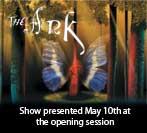Keynote Speakers
Adriana Puiggrós
Towards a socially-constructed knowledge for a more human world
Over the past few decades, growing consciousness about the gravity of the world’s environmental problems and the public mobilization that has ensued have given rise to increased recognition of the importance of taking popular knowledge and experience into account in the educational process. Yet, apart from greater economic interests, the biggest obstacles to the full recognition of these types of knowledge as both legitimate and useful are found within the educational systems themselves. School curricula have become inflexible structures resistant to change and, more particularly, to the enhancement and transfer of popular knowledge. In many Latin American countries today, the majority of the population is either not in school, drops out or is failed by the system, thereby limiting the impacts of the curricular reforms that have managed to be put in place. All too often, the problem has been approached from a Malthusian perspective, and few are the countries that develop public policies intended to promote the inclusion of social groups that have been marginalized within the dominant economy. This marginalization has emerged partly from the depreciation and exclusion of traditional knowledge, past technological know-how, practical and context-dependent solutions, cultural processes for local natural resource use, knowledge shared by workers, and collective learning. Moreover, the teaching of a general culture has been seen as superfluous. In this curriculum “reduction-compression” process, what is left is the teaching of the basic knowledge individuals need to adequately meet the demands of the market. At the same time, the society of efficiency and performance has rejected the kind of knowledge that, born of popular and democratic culture, calls into question the very foundations of such a society. Turning a blind eye to the past and concerned only with the present, this society is equally unmindful of its own future. Yet this future is coming quickly and the crisis is now catching up with the neoliberal education model. It is crucial to recognize and to value the alternative democratic experiences and policies that are developing in various Latin American countries and helping bring about a model of education that is open to technological, social and cultural changes. Such a model of education takes popular knowledge into account and uses it to build a more human world committed to preserving the integrity of the global ecosystem.

